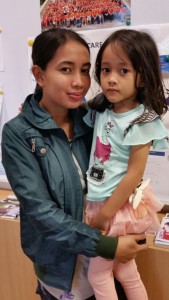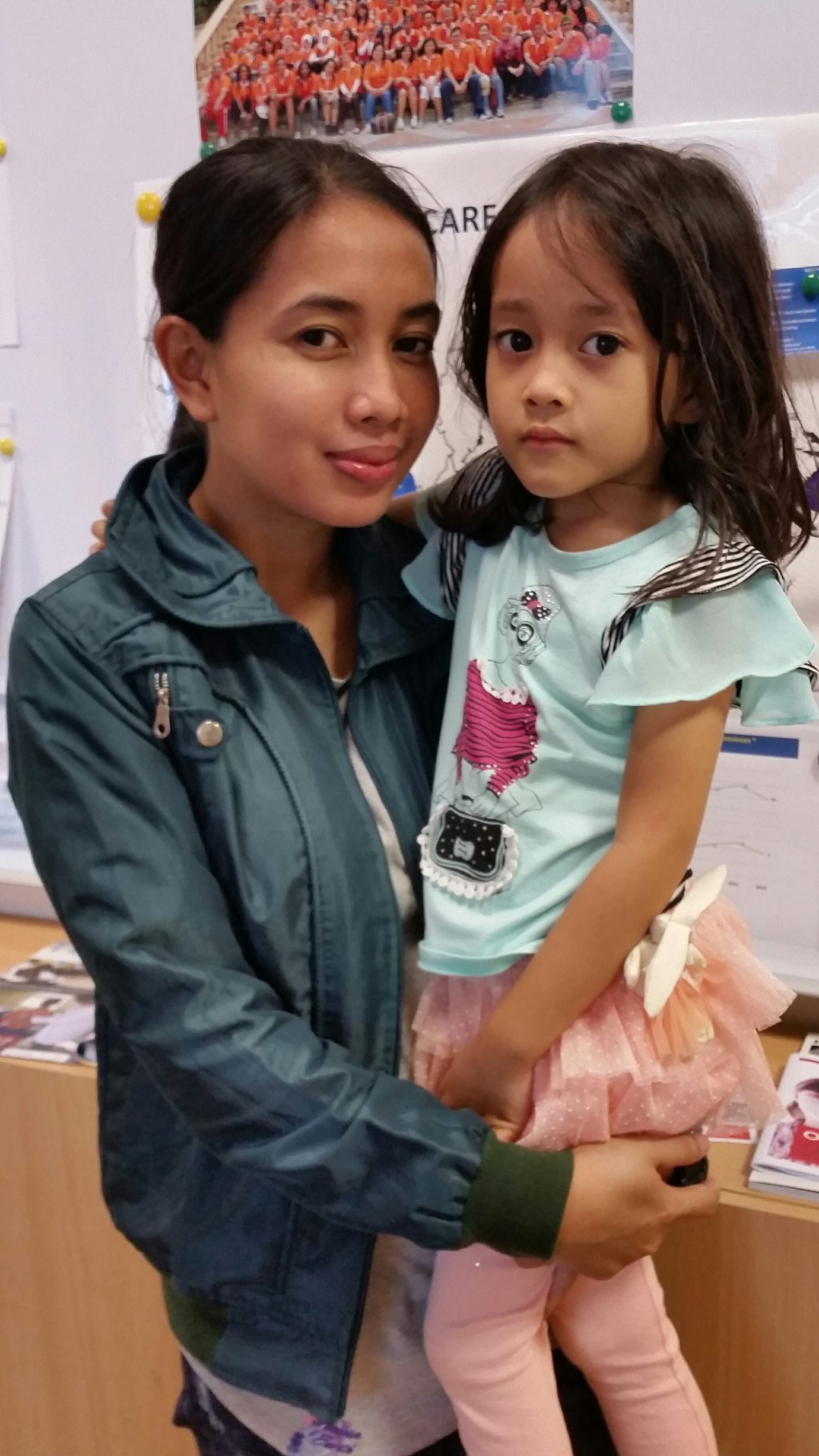Great progress has been made in improving access to quality services for people with MDR-TB in Indonesia through a combined approach of innovative technologies and patient support. Ully Ulwiyah is active as Chair of the Patients Support Group (PETA) in Jakarta and as mother of three children. She is 28 years old and a former multidrug-resistant tuberculosis (MDR-TB) patient. She was cured two years ago, but she continues to support other patients. Ully Ulwiyah tells about the importance of shared experiences.
“I became ill with TB four months after my daughter Chacha was born. Chacha is now four years old.” says Ully Ulwiyah. “The Patients Support Group was established three years ago: it was my initiative, together with another patient who had the peer educator training from KNCV in Jakarta. Many people with MDR-TB have side effects and other problems. I want to help them. I don’t want other patients to experience the same problems and side effects that I had. The side effect I suffered from was depression. Even though I had a young child to care for, and a family, I felt loneliness. My experience at the hospital was traumatic. I was afraid to go to the hospital for treatment and I was also struggling with loneliness. It was traumatic to have to take the drugs every day. “
Through a KNCV program at Persahabatan hospital Ully Ulwiyah got advice from a social worker and other patients. This greatly helped and inspired her. “It helps to get support from others. I was cured of MDR-TB after 22 months of treatment. Now I want to share my experiences with others. I do not want to get MDR-TB again, and I do not want others to get MDR-TB. I want to fight MDR-TB. Now I give information about MDR-TB. I explain to a patient what it means for his or her family and the danger if you don’t take treatment.” There are fifteen active members of the Patient Support Group; four men and eleven women. Ully Ulwiyah visits patients at the hospital on Mondays and Thursdays. “We educate and motivate new patients, and support them if they have bad side effects, like depression or hallucinations. I also visit patients at home if they default on treatment.”
In Indonesia the introduction of Xpert MTB/RIF has greatly improved screening for TB/MDR-TB. The average time between registering and initiating treatment of MDR-TB patients has dropped from 81 days to only 15, and MDR-TB deaths between diagnosis and starting treatment dropped from 11 to 2 % in two years. In some hospitals, however, up to 28 % of MDR-TB patients do not enroll in treatment for fear of side effects and severe socio-economic consequences. Former MDR-TB patients are actively involved as peer educators to support patients. Peer support groups give psychosocial support, acting as motivators and role models for other patients. Peer support builds on shared experiences and empathy, and leads to increased adherence to treatment.

